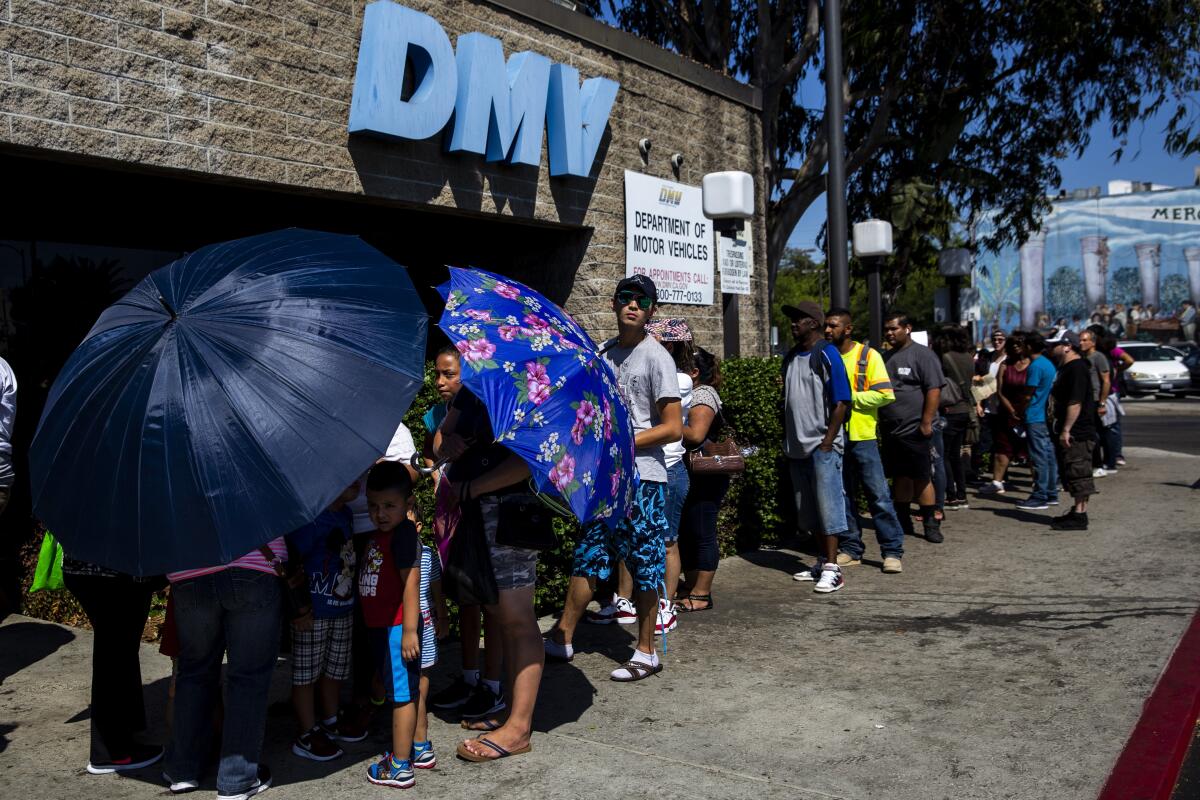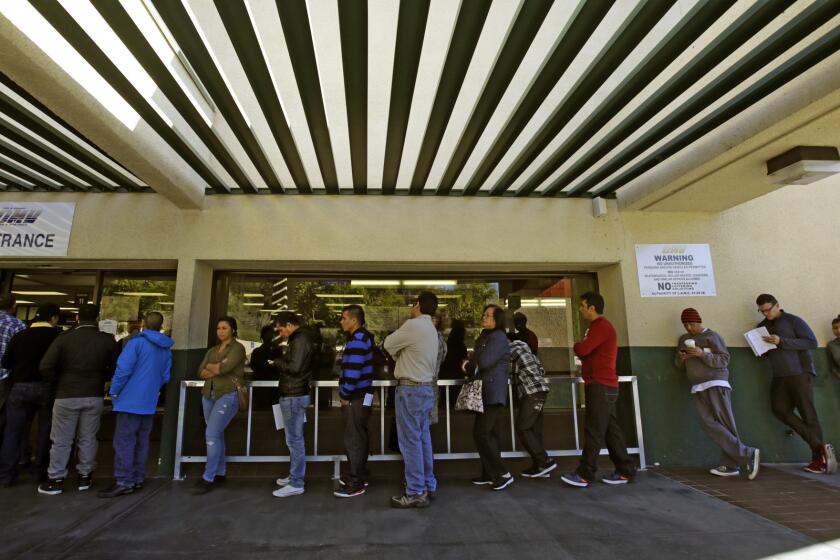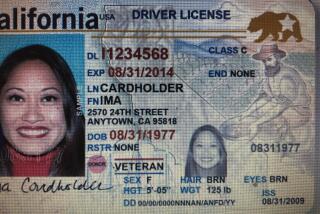Travelers need not worry about Real ID and authorization to visit Europe — for now

- Share via
Travelers have myriad other things to worry about, thanks to coronavirus, but federally compliant driver’s licenses and new paperwork that would have been required to enter more than two dozen European countries are not among them for now.
Both have been postponed.
First, Real ID. That’s the federally compliant driver’s license that was, until recently, supposed to be required for boarding a domestic flight beginning Oct. 1 (if you didn’t use some other form of acceptable identification, such as a passport).
Its implementation has been postponed until Oct. 1, 2021.
The desire for a more secure form of identification is based on legislation that became law in 2005, on the recommendation of the 9/11 Commission. Its implementation has been postponed several times, but an Oct. 1, 2020, deadline seemed firm until the coronavirus outbreak.
Faced with concerns among its employees about the spread of COVID-19, the California Department of Motor Vehicles announced in a memo to employees on Thursday that it is closing all of its more than 170 field offices to the public starting Friday.
Even before then, concerns surfaced about the readiness of the flying public. A study by the U.S. Travel Assn. released in the fall showed that most Americans didn’t understand what the requirement was or didn’t know whether they had a Real ID.
Other obstacles popped up along the way. California thought it had the OK to issue Real ID using an address verification process similar to one used in Wisconsin. Both states had received permission from the Department of Homeland Security. But DHS then changed its mind late in 2018.
More than 2 million licenses had already been issued in the nearly 11 months since the licenses had become available in California. The California Department of Motor Vehicles sent letters to those early adopters to request a second proof of residence.
Other bumps along the way to Real ID included passports that wouldn’t scan, meaning some residents had to resort to certified birth certificates. If a name had changed because of, say, a marriage, a marriage certificate was required (or several certificates depending on the number of marriages and name changes). Long wait times for an appointment at the DMV also became an issue. In-person appointments are required for Real ID.
In the face of coronavirus, DMV offices were closed last week. It is not known when the offices will reopen to the public.
ETIAS postponed
Additional paperwork for American travelers, known as the European Travel Information and Authorization System, or ETIAS, was to have been required for 26 countries beginning next year, but that date has been postponed until late 2022 and may come with a six-month or longer grace period.
Although the paperwork is often referred to as a visa, the European Commission rejects that descriptor. U.S. citizens have not been required to obtain a visa to visit the 26 Schengen countries, which the U.S. State department identifies as Austria, Belgium, Czech Republic, Denmark, Estonia, Finland, France, Germany, Greece, Hungary, Iceland, Italy, Latvia, Liechtenstein, Lithuania, Luxembourg, Malta, Netherlands, Norway, Poland, Portugal, Slovakia, Slovenia, Spain, Sweden and Switzerland.
The preauthorization, which would cost about $8, is a security precaution to help European countries secure borders. It is similar to the Electronic System for Travel Authorization, or ESTA, which the U.S. Department of Homeland Security requires for those who live in Visa Waiver Program countries. The list is available on the DHS website.
More to Read
Sign up for The Wild
We’ll help you find the best places to hike, bike and run, as well as the perfect silent spots for meditation and yoga.
You may occasionally receive promotional content from the Los Angeles Times.








